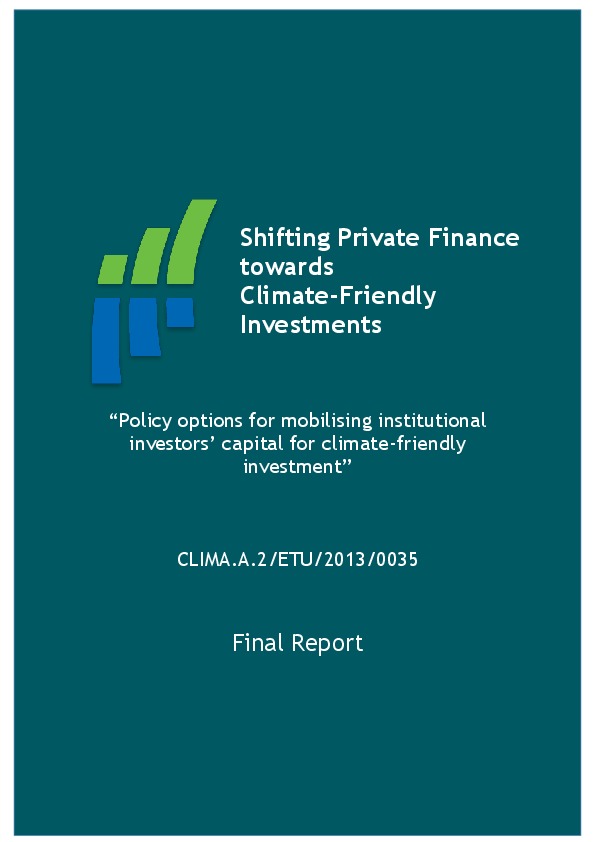Shifting Private Finance towards Climate Friendly Investments – Policy options for mobilizing institutional investors’ capital for climate-friendly investment
A report produced by the Financing the Future Consortium including: Triple E Consulting, Climate Bonds Initiative, 2° Investing Initiative, Frankfurt School UNEP Collaborating Centre for Climate & Sustainable Energy Finance, CDC Climat, Climatekos, CDP, Climate Policy Initiative, Get2C
The report provides the European Commission with an actionable toolbox to steer private finance towards climate-friendly investments, defined as those aligned with the EU’s transition to a low-carbon and climate resilient economy that limits global warming to 2°C.
Two categories of barriers to investment were identified: (1) Barriers that are external to institutional investors’ decision-making framework, e.g. availability and volume of climate-related investment options, less favorable risk/return profile, high transaction costs; (2) Barriers arising from institutional investors’ decision-making framework, e.g. mismatching time horizon of decision-making, lack of integration of climate in fiduciary duty and engagement practices, lack of relevant climate-related risk and performance methodologies.
There is a role for policymakers to speed up market enablers, including short-term measures such as credit enhancement initiatives and supporting green securitization, increasing the volume and acceptance of financial products such as green bonds as well as longer-term actions such as policy risk insurance and the development of climate performance metrics and carbon risk assessment to lengthen time horizons for investors.
